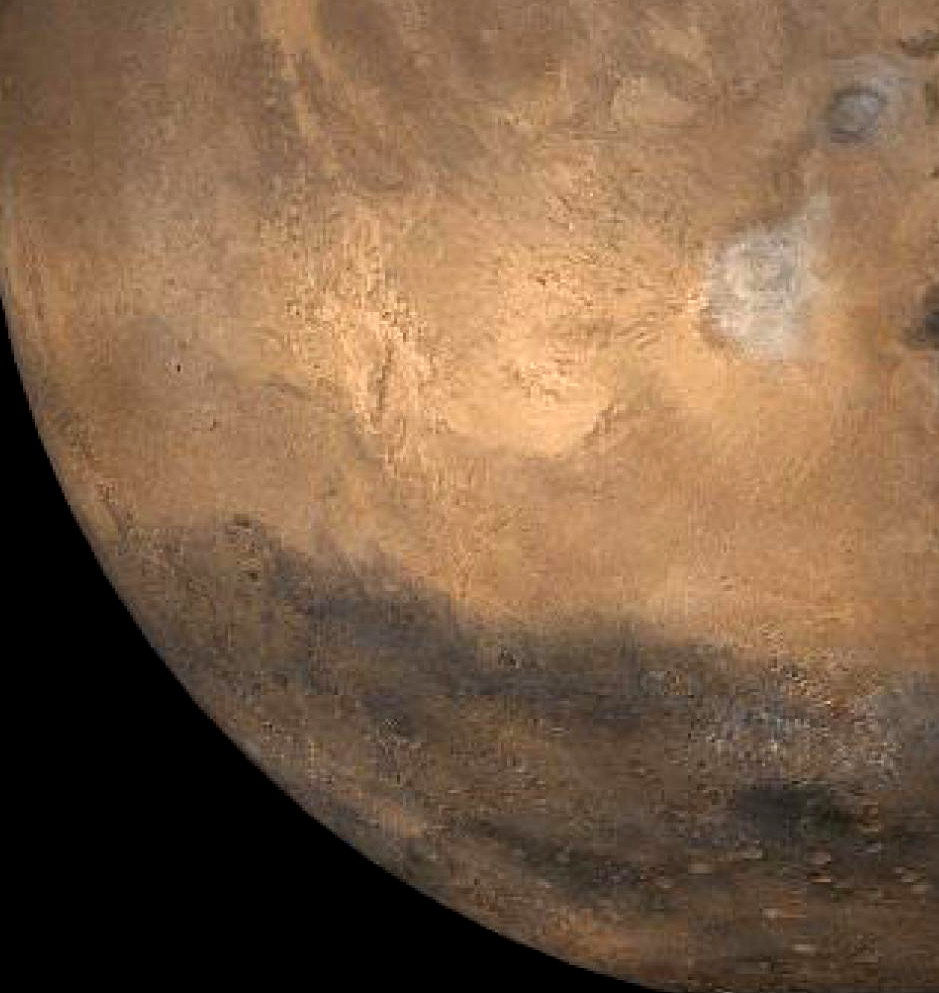Daily Mars frost discovered
 Scientists have discovered morning frost on some of the oldest and tallest volcanoes in the Solar System.
Scientists have discovered morning frost on some of the oldest and tallest volcanoes in the Solar System.
Researchers estimate that up to 150,000 tonnes of ice could form on the volcanic peaks of Mars, according to a new paper.
Researcher Adomas Valantinas and his team analysed images from ESA's Trace Gas Orbiter.
They focused on the Tharsis plateau, a region in Mars’ tropical latitudes that is home to several large volcanoes, including Olympus Mons, which stands at 21 kilometres tall. For comparison, Earth’s highest mountain is Mount Everest, at a mere 8.8 kilometres tall.
The analysis revealed ice deposits within the calderas - depressions formed when a volcano erupts and collapses - of these massive volcanoes. These deposits appeared only in the early Martian morning during colder seasons.
The research indicates that local atmospheric circulation above these giant volcanoes plays a significant role in the active exchange of water between the Martian surface and atmosphere.
Valantinas and colleagues used climate model simulations to show that surface temperatures were consistent with the frost being composed of water rather than carbon dioxide. This conclusion was supported by analyses of other spacecraft data.
The study highlights the presence of water frost at high altitudes on Mars, despite average surface conditions in the tropics not being conducive to frost formation.
Spacecraft observations had previously noted water ice clouds and localised enhanced levels of water vapour above the Tharsis plateau volcanoes, suggesting an active water cycle in this region. However, direct observational evidence of water condensation at such low latitudes had been limited.
Valantinas and his team discovered that the frost deposits on the Tharsis volcanoes only appear in the early morning and vanish by afternoon.
Atmospheric circulation patterns caused by the air flowing over these tall volcanoes create microclimates similar to those seen around high mountains on Earth. These conditions enable frost condensation at Tharsis.
The researchers estimate that about 150,000 tonnes of water ice may form daily on the Tharsis volcanoes during Mars' cold seasons.
While this amount is a small fraction of the total water vapour in the Martian atmosphere, it could still be significant for local surface environments.








 Print
Print